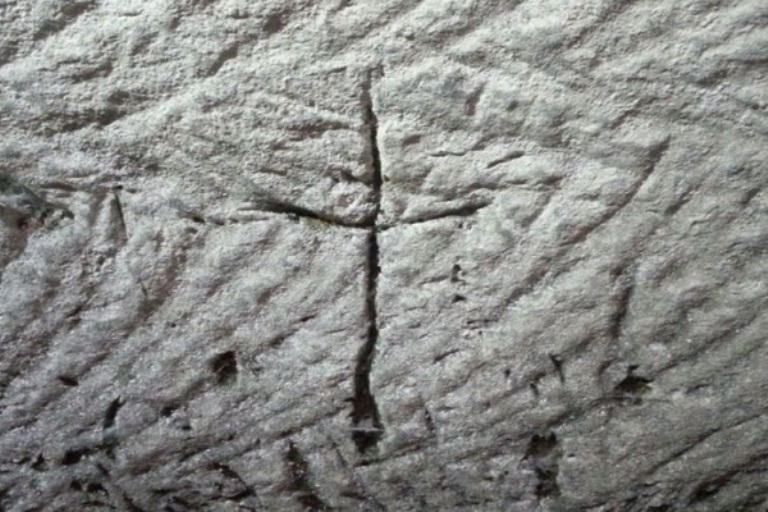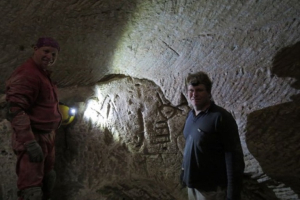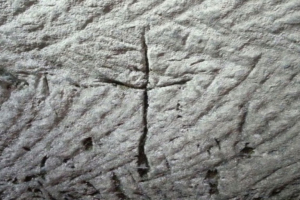Three caves and hiking enthusiasts just discovered significant religious symbols dating back to Jesus Christ's era, according to an Israel Antiquities Authority (IAA) announcement. A cross, plus an ancient seven-branched menorah, was found engraved on the walls of an early water cistern in Judean foothills. The etchings are believed to be more than 2,100 years old.
Ido Meroz, Sefi Givoni and Mickey Barkal told the Jewish News Service they were drawn to the hidden caves in the area. "Just before we were about to return, we suddenly noticed an engraving that at first glance seemed to be a menorah. When we realized this is an ancient depiction of a menorah, we became very excited. Its appearance was quite distinct," said Meroz.
The three hikers left the cave and reported the discovery to Israeli authorities, reports Christian Today.
Based on initial IAA dating estimates, the menorah image is believed to have been engraved from 530 BCE to 70 CE or during Jesus' existence and the early beginnings of Christianity, reports WRN.
The engraved cross was found near the menorah, but according to IAA sources, it may have been inscribed at a later date, probably during the Byzantine period.

The ancient cross engraving discovered by three hikers in Israel.
The menorah features seven branches and a base with three feet, and is considered suggestive of the Second Temple and the Bar Kokhba periods. IAA representatives said it's even rarer to find a type of menorah engraved in an item within the Judean shephelah. Currently, there are only two artifacts on which such a menorah was engraved: in a burial complex at Bet Guvrin and in an oil press at Bet Loya.
Sa'ar Ganor, IAA archaeologist of Ashkelon, said the recent finding plays a significant role for the Jewish people, in that such a discovery proves the existence of Jews in the land of Israel during the time of the Second Temple and the Bar Kokhba uprising. He said he believes the engraving probably was done by early Jews who took refuge in the area's hidden caves during the Bar Kokhba uprising.
Aside from these two religious symbols, several engravings depicting items, like a key, also were found in the cave.
Within the cistern also was an ancient columbarium used for raising doves, which were used as religious sacrifices during the Second Temple era.
The threesome who discovered the ancient cross and menorah engravings reportedly were given a citizenship award, plus the opportunity to work with IAA teams in future surveys of the Judean shephelah.


















